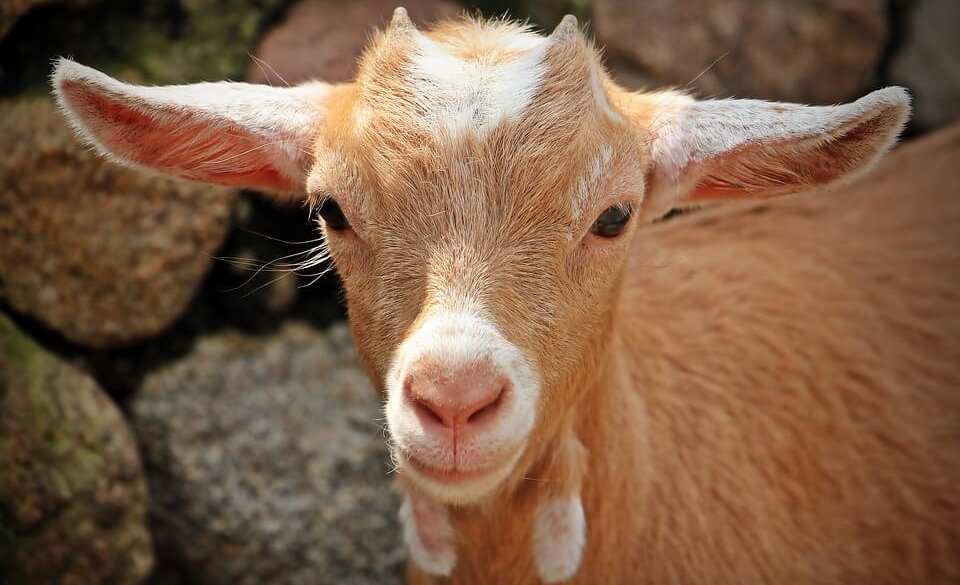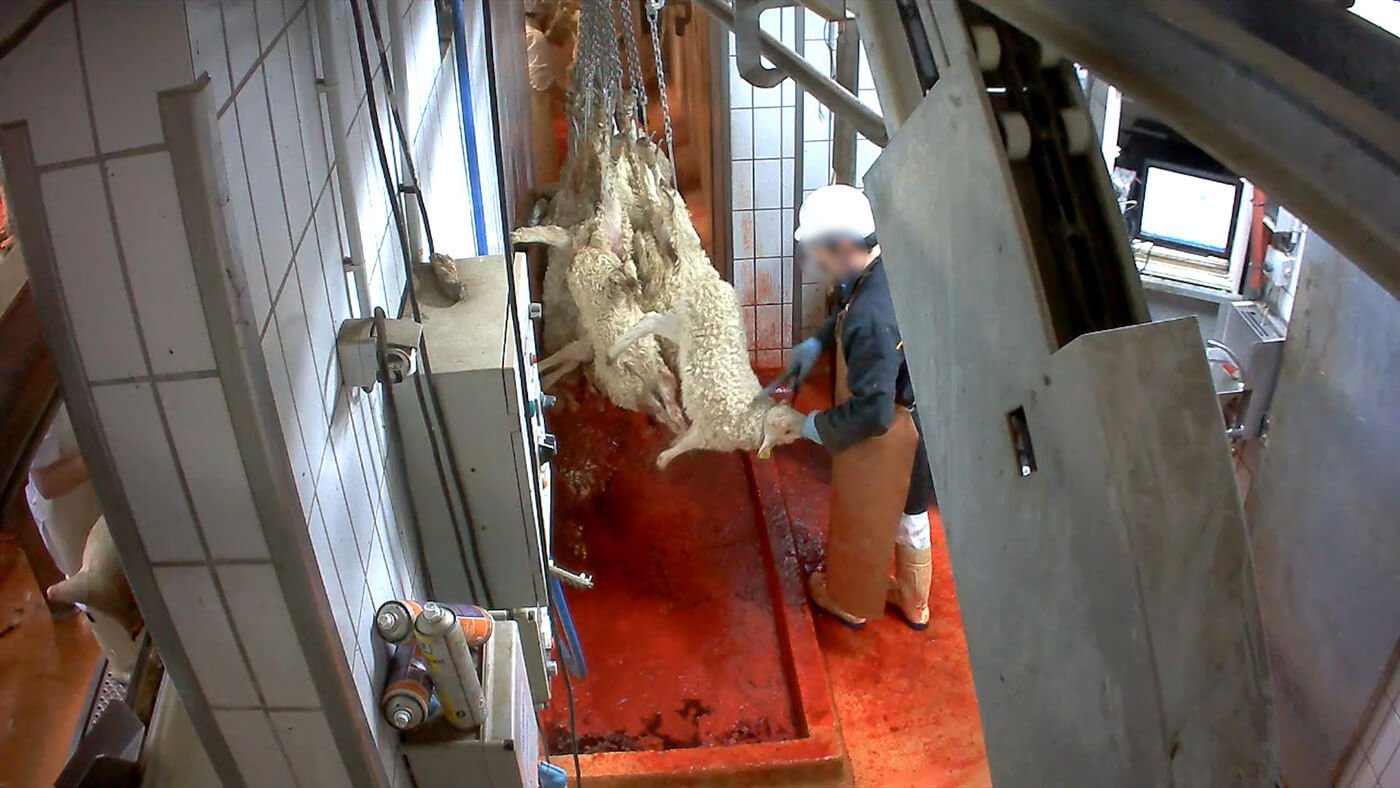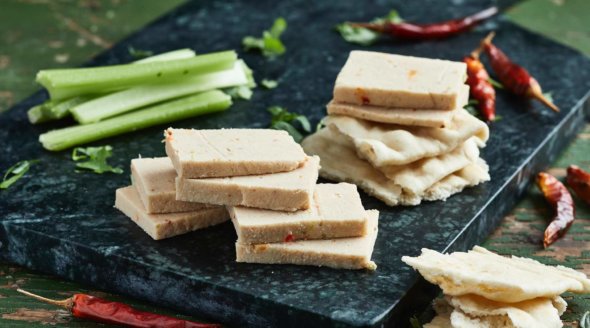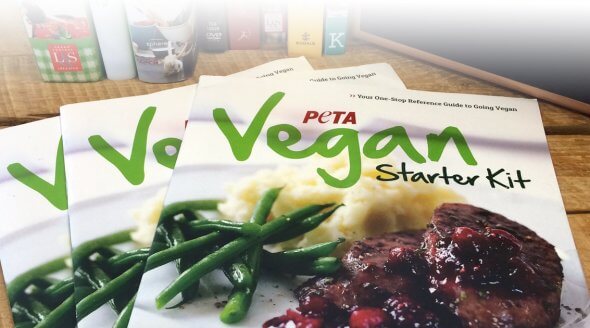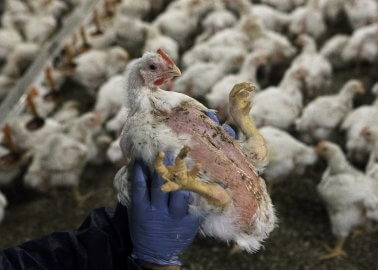Halloumi: A Nightmare for Goats, Sheep, and Cows
Halloumi is a type of cheese made from a mixture of milk stolen from goats, sheep, and cows. Every bite of halloumi is the result of exploitation and abuse of mother animals and their babies. As it’s unnatural for humans to consume milk from another species, eating halloumi is bad for our health and simply gross.
In the milk industry, goats, sheep, and cows all endure confinement, pain, and stress:
Babies Separated From Mothers
Cows would naturally suckle their calves for nine months to a year, but on dairy farms, their babies are taken away within days of birth. Mother cows often bellow and call out frantically for their young for several days afterwards. The milk industry is a nightmare for all mothers and babies – lambs and goat kids are also separated from their mothers shortly after birth.
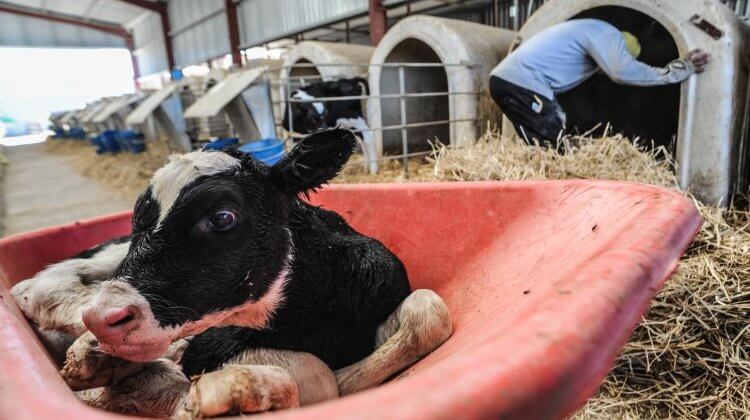
Male Babies Shot or Slaughtered for Flesh
Male animals can’t produce milk, so those born into the milk industry are considered useless by farmers. Male calves and lambs are usually slaughtered for their flesh at just a few months old. And male kids have even shorter lives – they’re typically shot at birth or shortly afterwards.
Mothers Forcibly Impregnated
Just like all other mammals, sheep, goats, and cows have to be pregnant or have given birth to produce milk, so farmers forcibly impregnate them in order to steal and sell the milk that nature intended for their babies.
Sheep may be impregnated with the help of this “sperminator” machine –this is VILE. 😡 pic.twitter.com/ToDY7Ea7gZ
— PETA UK (@PETAUK) 10 April 2019
All Mothers Exploited for Milk Are Eventually Slaughtered
Mother cows endure a nightmarish cycle of pregnancy and loss year in and year out, and they’re typically sent to be killed at just 6 years old, even though their natural life expectancy is 20 years.
All sheep exploited for their milk, meat, or wool are sent to slaughter when they’re no longer commercially viable. A Compassion in World Farming exposé of a sheep and goat abattoir in Cyprus, the birthplace of halloumi, found extreme cruelty and illegal practices, including that most sheep were slaughtered while still conscious.
Farming Cows, Sheep, and Goats Contributes to Climate Change
Anyone who hasn’t been living under a rock has heard about the huge carbon footprint of animal agriculture. In the UK alone, there are approximately 35 million sheep, 10 million cows, and 100,000 goats, all belching out vast amounts of methane – a potent greenhouse gas – into the atmosphere.
The carbon footprint of every plant-based milk is significantly smaller than that of milk stolen from cows (approximately 1.3 kilograms of carbon dioxide equivalent per kilogram), sheep, or goats (both roughly 5 kilograms of carbon dioxide equivalent per kilogram).
To help combat climate change, leading scientists are calling for the farming of sheep and cows to be reduced by 90% in the UK.
Halloumi Is Bad for Our Health
Cows, goats, and sheep produce milk for their own young. Their milk is designed to help these babies grow into large adults, so unlike plant-based milk, it’s full of cholesterol and saturated animal fat.
Goats’ milk and sheep’s milk, like cows’ milk, contain a sugar called “lactose”, which can be difficult for humans to digest, resulting in symptoms such as cramps, gas, bloating, and vomiting.
We don’t need to drink the milk of another animal to get the nutrients we need. Plant-based foods that are high in calcium include kale, pak choi, broccoli, and tofu. Beans, grains, and lentils are great sources of protein.
What You Can Do for Cows, Goats, and Sheep
It’s time to accept the truth: if she’s not your mum, it’s not your milk. There are countless animal-friendly, dairy-free, and delicious cheesy goods out there for us to eat. Not only is vegan cheese yummy, it’s also cholesterol-free and usually lower in fat than cheese made from the milk of cows, sheep, or goats. Best of all? Buying it doesn’t support the cruelty of the dairy industry. With so many delicious vegan cheeses available, switching to a vegan lifestyle is easier than ever!
Need more tips on going vegan? Order a copy of PETA’s free vegan starter kit:

